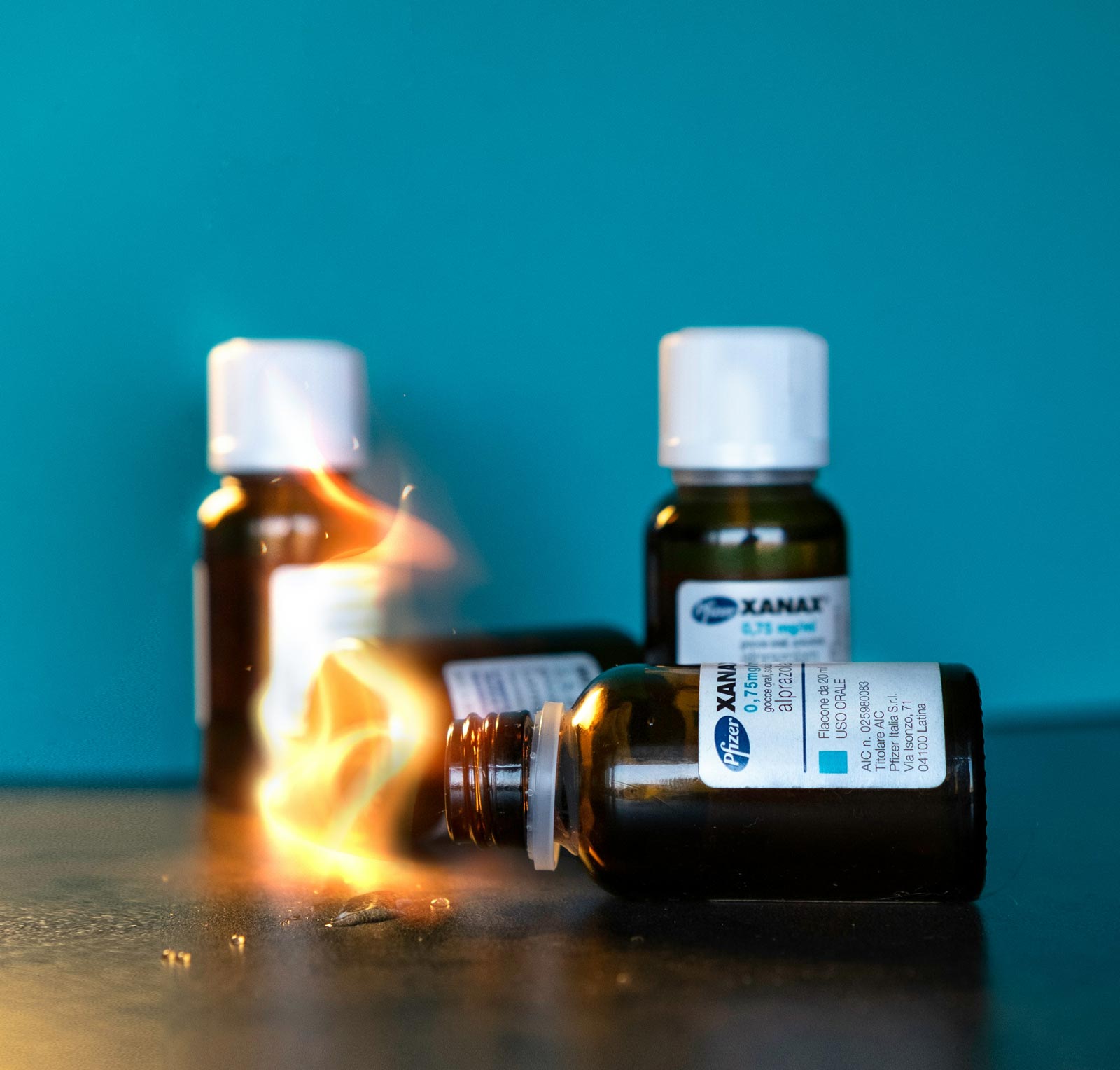Benzodiazepine overdose is possible if you take too much of a drug. However, the risk is much higher if you’re misusing benzodiazepines at high doses or mixing them with other drugs. There’s also a higher risk of becoming addicted to benzodiazepines or multiple substances, which is a substance use disorder.
An addiction to benzodiazepines, benzodiazepine-like drugs, or other sedative-hypnotics like barbiturates is a sedative, hypnotic, or anxiolytic use disorder in the Diagnostic and Statistical Manual of Mental Disorders (DSM-5). The criteria for this disorder include:[13]
- Taking benzos in larger amounts or over longer periods than intended
- A persistent desire or unsuccessful efforts to cut down or control benzo use
- Spending a lot of time obtaining, using, or recovering from benzos
- Experiencing cravings for benzos
- Failing to fulfill major role obligations at work, home, or school because of benzo use
- Continued benzo use despite social or interpersonal problems
- Giving up important social, occupational, or recreational activities because of benzo use
- Using benzos in situations in which it is physically hazardous, such as driving a car under the influence
- Continuing benzo use despite knowledge of recurrent physical or psychological problems that are caused by it
Treatment for Benzodiazepine Misuse or Addiction
Benzodiazepine misuse and addiction can be difficult to overcome, but it is possible with treatment. If you’re addicted to benzos or have been misusing them, especially with other drugs, you mustn’t try to quit cold turkey on your own. Stopping benzos after prolonged use or dramatically reducing your dosage can lead to unpleasant withdrawal symptoms because of benzodiazepine dependence, some of which can be life-threatening.
Stopping benzos requires a taper schedule to wean you off the drug and reduce the severity of withdrawal symptoms from benzodiazepine dependence, which a doctor should handle. If you’re addicted to benzos or use other substances, medical detox may be the best choice. This setting provides a medical team to manage withdrawal symptoms, monitor your health, and keep you as safe and comfortable as possible while the drugs clear your system.
Detox is an important step for severe withdrawal, but it’s not enough to treat addiction on its own. A comprehensive addiction treatment plan is necessary to identify the thought patterns, emotions, and social behaviors that contribute to addiction. Inpatient and outpatient programs offer personalized treatment for Benzo addiction that may include behavioral therapies, individual and group counseling, and peer support groups.
Avoid Benzodiazepine Overdose
Flumazenil is a helpful drug to help treat or reverse a benzodiazepine overdose and buy time for medical treatment, but it’s not a guarantee. There are risks with flumazenil administration as a treatment of benzodiazepine overdose as well, including possible seizures and adverse effects. If you’re struggling with benzodiazepine misuse or addiction, it’s important to get help as soon as possible to avoid the risk of overdose and get on a healthier path.



